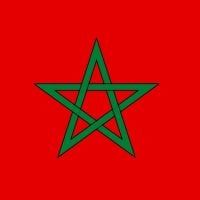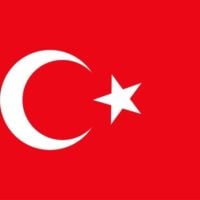Deadline: 11 August 2019
The Safe Abortion Action Fund (SAAF) has launched a call for concept notes for local and grassroots organizations to apply for flexible grants to support their work on abortion.
SAAF works toward a world where rights to access safe and legal abortion are established and protected, women are empowered to exercise these rights and lives are saved. Hosted by the International Planned Parenthood Federation (IPPF), SAAF supports local and grassroots organizations, providing flexible grants for projects that:
- Increase access to quality abortion services with a focus on addressing the needs of poor, vulnerable and hard to reach women and girls
- Support legal and policy reforms in countries where abortion is restricted
- Tackle negative societal norms and attitudes towards abortion, in order to create an enabling environment that ensures every woman and girl has access to quality abortion services
- Generate and disseminate evidence to improve the quality and effectiveness of abortion programming and advocacy strategies
By visibly funding projects using an international funding mechanism, SAAF works to de-stigmatize abortion and to legitimize the abortion debate by creating and supporting a ‘network of champions’ who are more empowered to work at local and national levels.
Funding Information
- The maximum funding level for selected projects will be US$ 80,000 (US dollars) for projects with a maximum duration of 15 months.
- Project start dates will be 1 January 2020. The latest end date possible is 31March 2021.
Grant Streams
- Grant stream 1: Supporting progressive abortion laws and policies through targeted advocacy
- Examples of project initiatives and strategies:
- Changing policies or regulations through public campaigns (for example petitions, marches, media campaigns);
- Development, reform or implementation of guidelines regulating comprehensive abortion or post-abortion care;
- Building strategic partnerships with coalitions, working groups or committees (national and/or local) working on progressive abortion laws, clinical guidelines/regulations etc.;
- Evidence-based advocacy with policy makers, opinion leaders and key professional groups;
- Developing strategies to counteract the anti-choice movement.
- Examples of project initiatives and strategies:
- Grant stream2: Breaking the silence and changing attitudes and norms towards abortion through awareness raising and behaviour change.
- Examples of project initiatives and strategies:
- Information dissemination – Inform the general public, health professionals and other key groups of the legal status and availability of safe abortion services. This could be through a range of media including, television, radio, billboards, SMS, social media, websites etc. This information cannot focus solely on the dangers of unsafe abortion but must recognise abortion as a women’s right.
- Promoting positive attitudes -Development or implementation of sexuality education programs for youth that include accurate information regarding contraception and abortion
- Dissemination of best practice – The identification and promotion of best practice in abortion-related programmes
- Measure and fight stigma surrounding abortion in local communities and among medical professionals
- Examples of project initiatives and strategies:
- Grant stream 3: Improving access to safe abortion services
- Examples of project initiatives and strategies:
- Introduction of new abortion technologies. This includes the introduction and implementation of safe technologies for the delivery of abortion services, including manual vacuum aspiration (MVA) and medical abortion.
- Provision of quality comprehensive abortion care or post-abortion care services focusing on young, under-served and/or vulnerable women.
- Introduction of innovative service delivery models – such as task-shifting or harm reduction approaches – that increase access to safe abortion care for hard to reach populations
- Improvement of access to voluntary post-abortion contraception
- Harm reduction -This area includes projects that aim to reduce harm and preserve the health of women in situations where the legal framework, policies or practices prohibit access to safe abortion services. This includes training non-medical professionals (pharmacists, lay health workers, telephone hotline counsellors) to provide women with information on harm-reduction (i.e. information on safe methods of abortion such as medical abortion)
- Quality of care – The training of staff and service providers in quality of care standards, and the rights of the client for the provision of non-judgmental and sensitive counselling and services.
- Capacity building – This area may include projects that aim to create centres of excellence or to facilitate inter/intra-regional and south-to-south exchanges and transfers of expertise.
- Examples of project initiatives and strategies:
- Grant stream 4: Generating understanding and evidence on abortion through research
- Examples of project initiatives and strategies:
- Research and documentation – Research incidence of abortion and/or unsafe abortion; the demand for abortion services; post-abortion and abortion complication case load; the impact of unsafe abortion on women, their families and communities; and the legal status of abortion and actual practices.
- Abortion and vulnerable groups – Documentation of how unsafe abortion disproportionately affects young, poor and marginalized women.
- Qualitative needs assessments – Initiatives concerned with assessing knowledge, attitudes and practices among community groups regarding abortion and unsafe abortion.
- Operations research – Projects aiming to determine optimum aspects of service delivery for safe abortion services in under-served/difficult areas or with marginalized populations.
- Examples of project initiatives and strategies:
Eligibility Criteria
- Only local and grassroots organizations registered in countries listed below will be eligible for funding. At least 50% of funds will be granted to organisations in priority countries. SAAF can fund projects led by individual organizations, a group of organizations or national and regional networks based in the Global South.
- Organizations without a formal registration will be allowed to apply if they have a fiscal sponsor. A fiscal sponsor is a registered organization that will sign the contract with SAAF on the applicant´s behalf. The applicant and the fiscal sponsor must have a written memorandum of understanding outlining their respective roles and responsibilities. The fiscal sponsor must be based in one of the eligible countries (preferably in the same country as the applicant). The fiscal sponsor will be subjected to due diligence checks by the SAAF Secretariat.
How to Apply
Interested applicants should send the application form and relevant documentation by email at the address given on the website, with the subject line “Concept note submission”.
Eligible Countries:
- Priority Countries: Afghanistan, Angola, Azerbaijan, Bangladesh, Benin, Burkina Faso, Burundi, Cambodia, Cameroon, Central African Republic, Chad, Comoros, Côte d’Ivoire, Democratic Republic of the Congo, Djibouti, Egypt, Eritrea, Eswatini, Ethiopia, Gambia, Ghana, Guinea, Guinea-Bissau, Haiti, Iraq, Kenya, Kyrgyzstan, Lao People’s Democratic Republic, Lebanon, Lesotho, Liberia, Libya, Madagascar, Malawi, Mali, Mauritania, Mozambique, Myanmar, Nepal, Niger, Nigeria, Pakistan, Papua New Guinea, Rwanda, Sao Tome and Principe, Senegal, Sierra Leone, Solomon Islands, Somalia, South Sudan, Sudan, Tajikistan, Tanzania, Togo, Turkmenistan, Uganda, Uzbekistan, Venezuela, West Bank and Gaza Strip, Yemen, Zambia, Zimbabwe.
- Other Eligible Countries: Albania, Algeria, Antigua and Barbuda, Argentina, Armenia, Belarus, Belize, Bhutan, Bolivia, Bosnia and Herzegovina, Botswana, Brazil, Cabo Verde, China (People’s Republic of), Colombia, Congo, Cook Islands, Costa Rica, Cuba, Democratic People’s Republic of Korea, Dominica, Dominican Republic, Ecuador, El Salvador, Equatorial Guinea, Fiji, Gabon, Georgia, Grenada, Guatemala, Guyana, Honduras, India, Indonesia, Iran, Jamaica, Jordan, Kazakhstan, Kiribati, Kosovo, Malaysia, Maldives, Marshall Islands, Mauritius, Mexico, Micronesia, Moldova, Mongolia, Montenegro, Montserrat, Morocco, Namibia, Nauru, Nicaragua, Niue, North Macedonia, Palau, Panama, Paraguay, Peru, Philippines, Saint Helena, Saint Lucia, Saint Vincent and the Grenadines, Samoa, Serbia, South Africa, Sri Lanka, Suriname, Syrian Arab Republic, Thailand, Timor-Leste, Tokelau, Tonga, Tunisia, Turkey, Tuvalu, Ukraine, Vanuatu, Viet Nam, Wallis and Futuna.
For more information, please visit https://www.saafund.org/call-for-applications-2019-eng









































